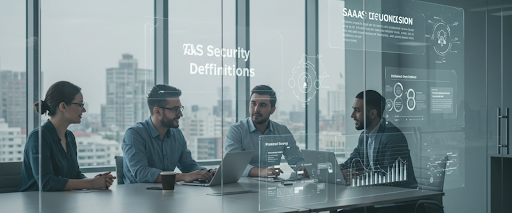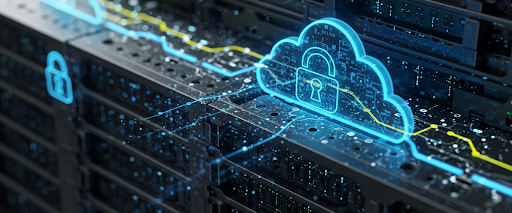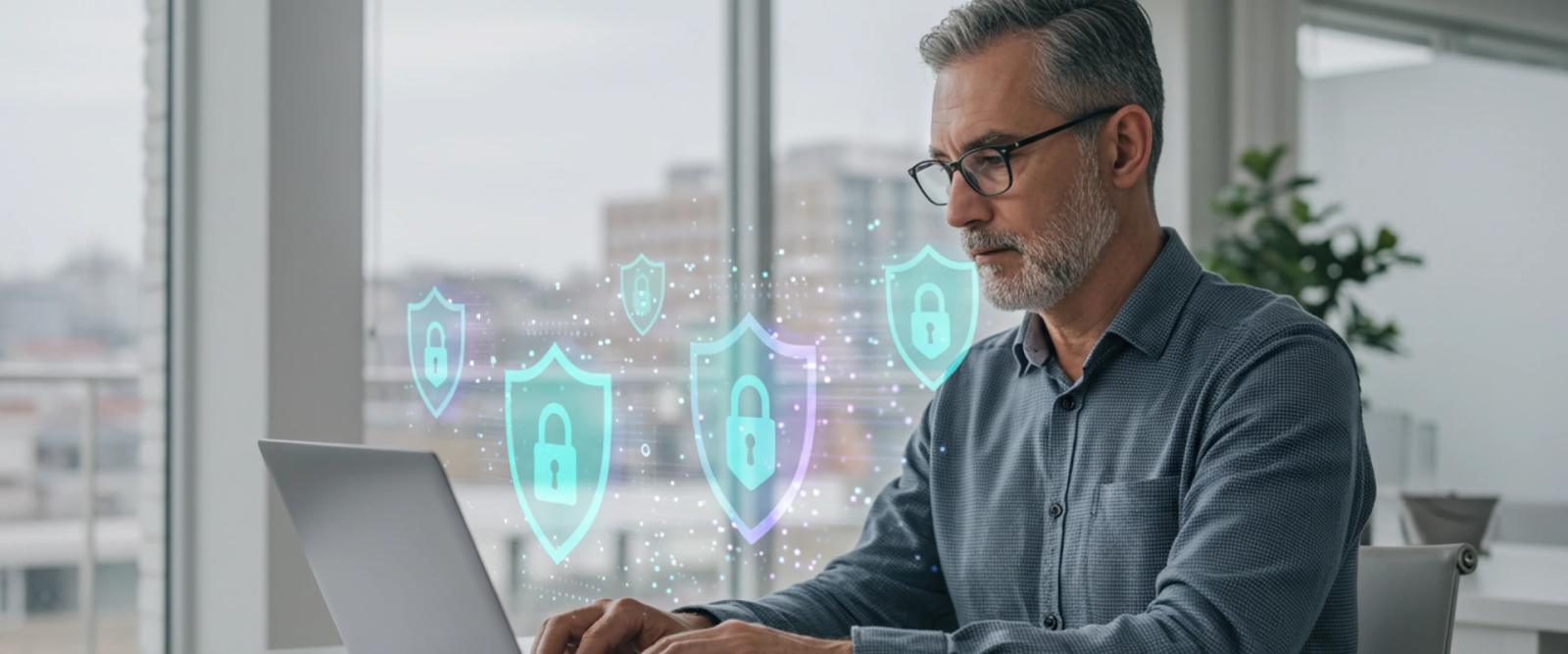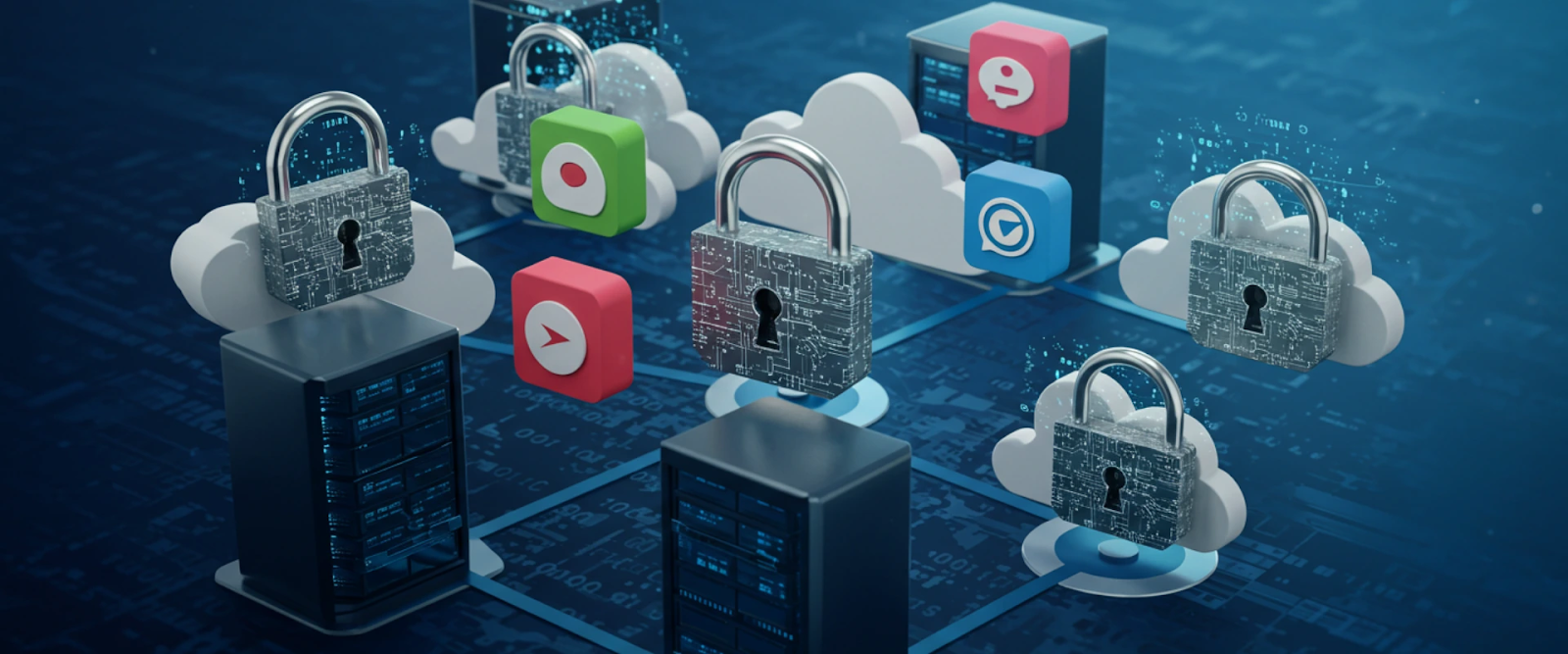What Is SaaS Security Key Risks and Protections
Software as a Service (SaaS) has become a mainstay for businesses, providing convenience, scalability, and cost-effectiveness. However, with its wide adoption comes the crucial need to address security risks. SaaS applications often hold sensitive data, making them a potential target for cyberattacks. To understand more about the key risks in SaaS security and how to protect your organization, visit Febyte for detailed insights.
The rise of Software as a Service (SaaS) has transformed how businesses operate. These cloud-based solutions provide convenience, accessibility, and scalability. However, as companies increasingly rely on SaaS applications to manage critical operations, ensuring SaaS security has become a top priority.
This blog will explore what SaaS security is, the most common risks, and the protections your business can put in place to secure its cloud services. By the end of this article, you'll understand how to approach SaaS security to protect sensitive data and maintain operational integrity.
What Is SaaS Security and Why Does It Matter?
SaaS security refers to the measures and strategies used to protect Software as a Service applications from external and internal threats. These applications often host sensitive customer data, financial records, and intellectual property, making them a prime target for cybercriminals.
Unlike traditional software solutions installed on local servers, SaaS applications operate in the cloud. While this offers increased convenience, it also introduces elevated security risks.
By implementing robust SaaS data protection strategies, businesses can safeguard their operations, comply with industry regulations, and maintain customer trust.

Importance of SaaS Security
1.Protecting Sensitive Data
SaaS apps store vast amounts of critical information. Securing this through data encryption, IT support, and proactive cybersecurity solutions minimizes the risk of data leaks or unauthorized access.
Without adequate security measures, this data can be exposed to unauthorized access, theft, or manipulation. Implementing strong security protocols, such as encryption and secure authentication mechanisms, ensures that data stored and transferred through SaaS solutions remains protected even in the event of a breach.
2.Maintaining Regulatory Compliance
Many industries are governed by strict regulations regarding data protection, such as GDPR, HIPAA, and CCPA and other regulations require compliant data management and protection protocols to avoid penalties.SaaS security solutions help businesses adhere to these requirements by providing features like data encryption, access controls, and audit logging to ensure adherence to compliance frameworks.
3.Minimizing Downtime and Operational Disruptions
A successful cyberattack on a SaaS platform can lead to significant downtime, affecting a company's operations, productivity, and customer satisfaction. By implementing proactive security measures, including network management, incident response planning, and vulnerability assessments, businesses can reduce the risk of disruptions and ensure seamless service continuity.
4.Building Customer Trust
Customers entrust businesses with their personal and financial information. A data breach or any security lapse can shatter that trust, leading to customer attrition and damage to the brand's reputation. Security failures damage reputations. Businesses that prioritize
custom software protection and employ strong
cybersecurity frameworks build long-term customer confidence.
5.Adapting to Evolving Threat Landscapes
Cyber threats are constantly evolving, with new tactics and vulnerabilities emerging regularly. Robust SaaS security involves staying ahead of these threats by leveraging advanced technologies like AI-driven threat detection, regular updates, and employee training programs. This proactive approach ensures businesses are equipped to handle emerging risks effectively.
By addressing these key points, organizations can strengthen their SaaS security posture and create a safer operational environment in the cloud.

Key Risks for SaaS Applications
Using SaaS introduces risks where cloud migration and third-party services like VoIP services may unintentionally create vulnerabilities without proper integration checks or network management oversight.
Here's a closer look at key risks:
1. Data Breaches
Sensitive customer and business data stored in SaaS applications can be exposed through hacking, weak authentication protocols, or misconfigurations.
2. Insider Threats
Employees or contractors with malicious intent or reckless behavior may inadvertently expose the organization to an attack.
3. Misconfigurations
Misconfigured SaaS applications can leave open doors for attackers to exploit. A simple mistake in access control settings, for example, can lead to unauthorized data exposure.
4. Third-Party Integrations
SaaS applications often integrate with other tools. Poorly secured third-party integrations can create vulnerabilities in the entire security chain. Especially when integrating services like VoIP, where knowing “What is VoIP number” and its security relevance is essential.
5. Lack of Visibility
Organizations often struggle to monitor who is accessing their SaaS tools and for what purposes. This lack of visibility can lead to unauthorized access and data misuse.
6. Shared Responsibility Risks
Many businesses assume that SaaS providers fully protect their data. However, security is typically a shared responsibility between the provider and the user.

Effective SaaS Security Protections
To counter these risks, organizations must adopt a comprehensive approach to SaaS security definition. Here are key measures to consider:
Implement Strong Access Controls
Control who accesses your SaaS tools with measures like:
- Multi-Factor Authentication (MFA)
- Role-based access controls
- Regularly updated permissions, especially when employees leave the organization
Regularly Monitor SaaS Applications
Use tools that provide real-time monitoring and analytics on user activities within SaaS apps. This improves visibility and helps identify suspicious behavior early.
Encrypt Data
To protect sensitive information, ensure that data is encrypted:
- At rest (stored data)
- In transit (data moving between systems)
Leverage a CASB (Cloud Access Security Broker)
CASBs provide an additional layer of security, acting as a gatekeeper between users and the SaaS environment. They help enforce security policies, detect threats, and prevent unauthorized access.
Conduct Penetration Testing
Regular security audits and penetration testing can expose vulnerabilities in your SaaS applications before hackers do.
Educate Employees
Train your staff in recognizing phishing attempts, managing strong passwords, and adhering to security guidelines.
Review and Secure Third-Party Integrations
Regularly evaluate any third-party tools connected to your SaaS applications to ensure they follow strong security protocols.
Backup Data
Ensure regular backups of critical SaaS data are in place so that it can be restored in case of accidental deletion or cyberattacks.

How SaaS Security Aligns with Business Success
Following are the
- Protects Sensitive Data
Ensuring robust SaaS security measures helps protect sensitive customer and business data from breaches and unauthorized access. This safeguards the organization's reputation and prevents potential legal liabilities.
- Mitigates Financial Losses
A proactive approach to SaaS security reduces the risks of cyberattacks, which can lead to significant financial losses due to ransom demands, downtime, and recovery costs.
- Ensures Regulatory Compliance
Many industries are subject to strict regulations regarding data protection and privacy. Strengthening SaaS security helps businesses stay compliant with laws such as GDPR, HIPAA, and CCPA.
- Boosts Customer Confidence
Customers are more likely to trust companies that demonstrate a strong commitment to security. Investing in SaaS security helps build customer confidence and loyalty, driving long-term success.
- Minimizes Downtime
Strong security measures can prevent service interruptions caused by breaches or system failures, ensuring continued productivity and business operations.
- Facilitates Scalability
A secure SaaS environment is better equipped to handle expanding business operations and growing data needs, supporting scalability without compromising security.
Why Choose Febyte for SaaS and Cloud Security
- Comprehensive Security Solutions
Febyte offers an all-encompassing suite of security measures tailored specifically for SaaS and cloud applications. From data encryption and access management to threat detection, our solutions provide end-to-end protection.
- Expertise in SaaS Platforms
With extensive experience in securing leading SaaS platforms, Febyte understands the unique challenges businesses face. Our tailored strategies are designed to meet the dynamic needs of cloud-based environments.
- Proactive Threat Detection
Our advanced monitoring tools ensure real-time detection of vulnerabilities and potential threats. Febyte takes a proactive approach, identifying risks before they lead to data breaches.
- Reliable Compliance Support
Febyte ensures your business meets industry-wide regulatory requirements such as GDPR, HIPAA, and SOC2, safeguarding your organization from legal and financial repercussions.
- Scalability Without Compromise
Our solutions are built to evolve with your business, providing robust security as your operations grow. Febyte prioritizes flexibility while maintaining stringent security protocols.
- Exceptional Customer Support
We provide 24/7 customer support to ensure any security concerns or issues are promptly addressed, minimizing downtime and boosting business continuity.
- Cost Optimization
By streamlining security processes, Febyte helps organizations reduce unnecessary costs while ensuring maximum protection for SaaS and cloud environments.
Taking Control of Your SaaS Security
Securing SaaS applications is no longer optional for businesses. A proactive approach not only protects sensitive information but also strengthens trust with customers and stakeholders. At Febyte, we specialize in delivering cybersecurity solutions tailored for businesses navigating cloud apps and SaaS risks. Our expertise spans advanced encryption, threat detection, and real-time monitoring to ensure your operations remain safe and compliant.
Need expert help? Contact Febyte today to secure your SaaS tools and maintain peace of mind in the cloud.
FAQs on SaaS Security
What is SaaS security, and why is it important?
SaaS security involves protecting cloud-based software applications from unauthorized access and cyber threats. It safeguards data, ensures regulatory compliance, and secures business continuity.
Who is responsible for SaaS security?
SaaS security is a shared responsibility between the provider (securing the infrastructure) and the user (securing data and access settings).
How do I secure third-party integrations?
Ensure all third-party integrations follow strong security policies and are evaluated regularly for vulnerabilities.
Can SaaS apps be backed up?
Yes, you can use third-party backup solutions to ensure your SaaS data is regularly stored and recoverable.
